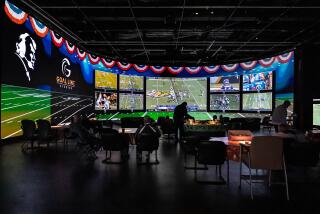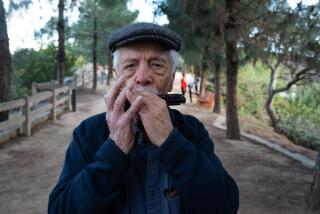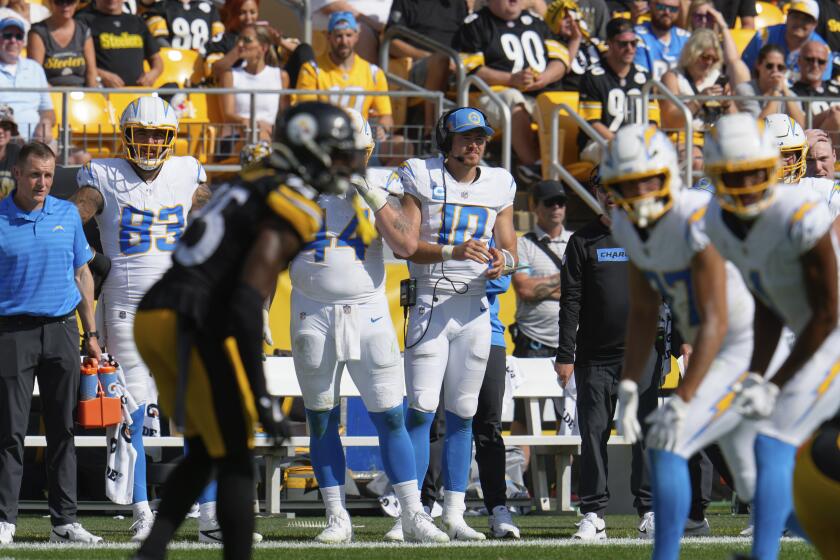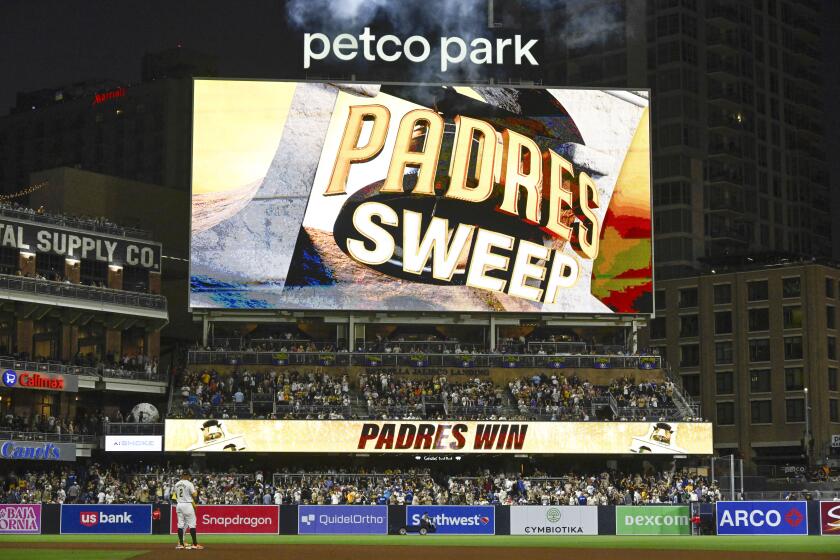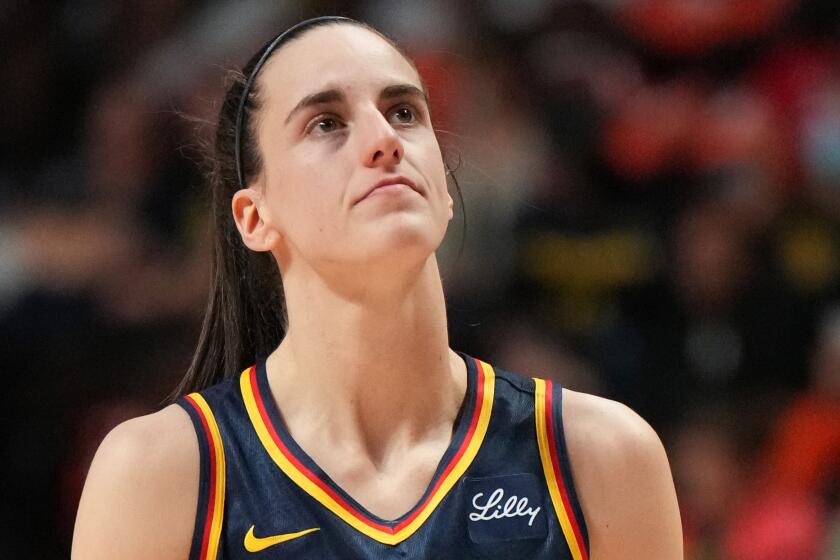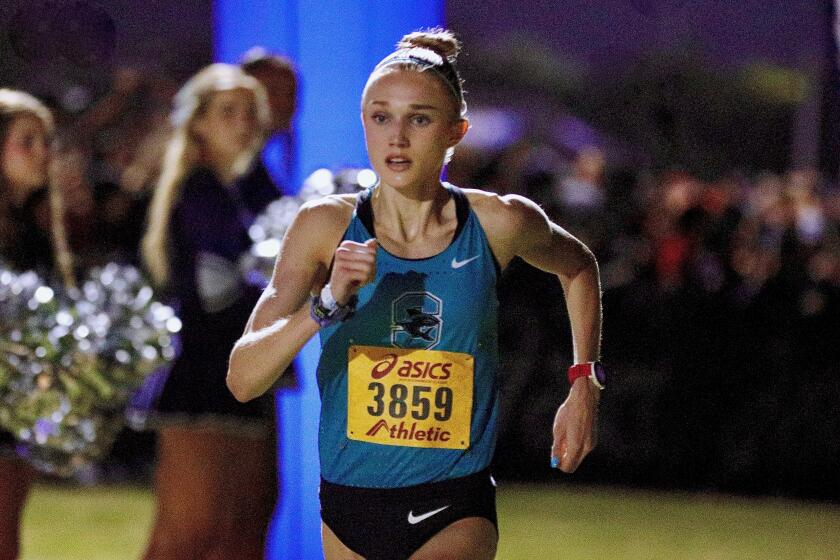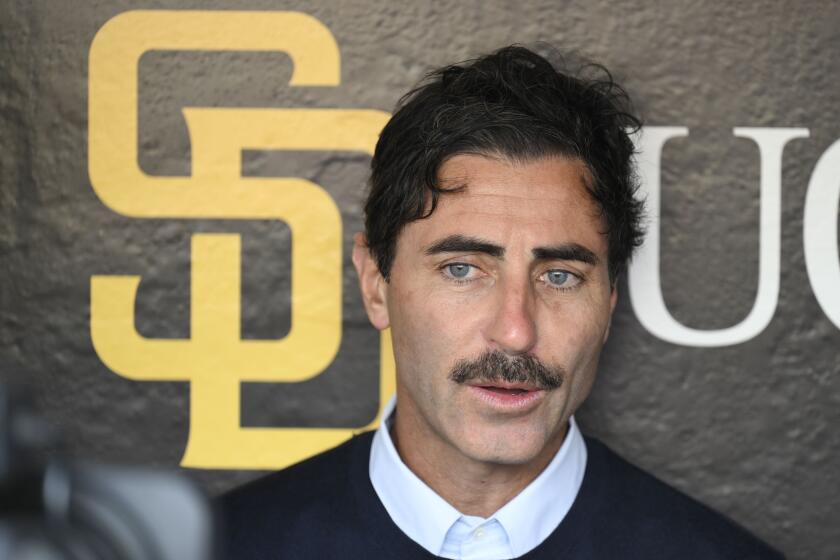Count this game among Thanksgiving’s time-honored traditions
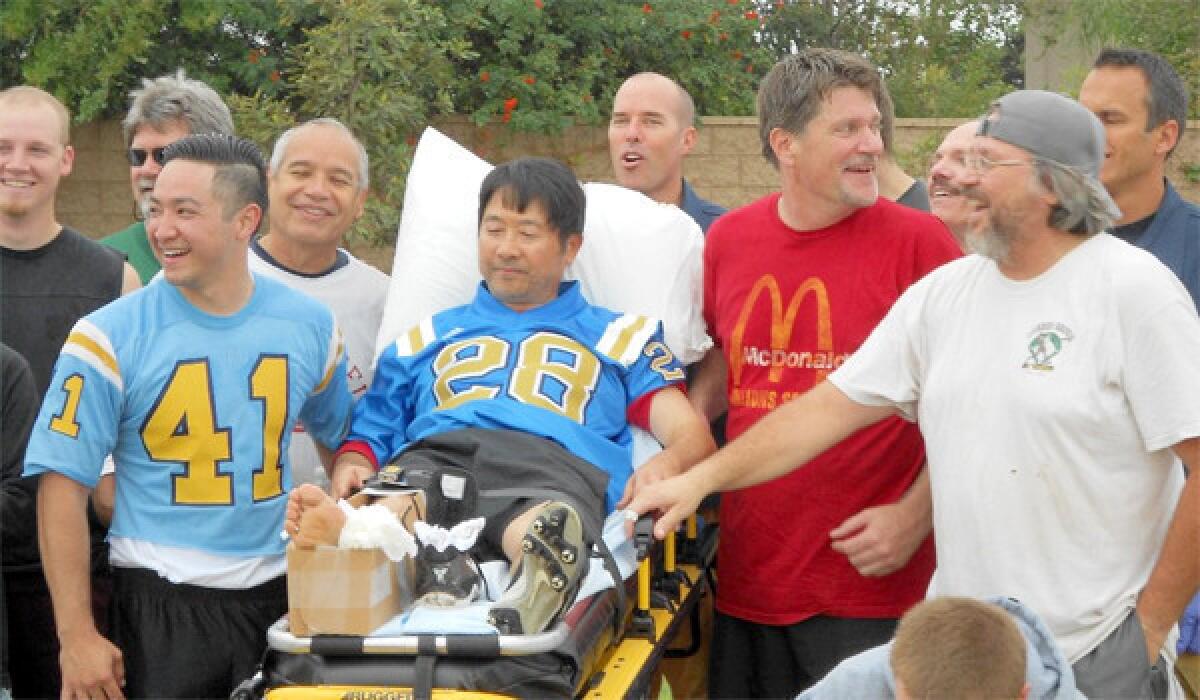
In 1972, teen workers at a couple of Anaheim fast food joints gathered — like Pilgrims — to compete in their first-ever Thanksgiving football showdown. On Thursday, they will mark their 42nd Turkey Bowl, a tribute not just to tradition, but to lunacy and camaraderie, to bloody knees and the sort of sludgy soreness that seeps into your bones for a couple of days after.
That’s right, 42 years.
“I think we have only a couple of more to go,” says one of the ringleaders, Steve Enke, now 57. “In the 1990s, we said, let’s make it to 2000. When we got to 2000, the goal was to get to 2011 — the 40th game. Now, who knows?”
Army has Navy. Yale has Harvard. Fred has Wilma. Every Thanksgiving, these guys have one another — cantankerous and feisty one minute, lifelong buddies the next. Now in their late 50s, they are kindred spirits with wishbone dreams.
Annual Thanksgiving pickup games like theirs are an American tradition. For some, it’s a way to get out of a stuffy house crammed with relatives, to fling the ball around, to have a few laughs.
In fact, the thousands of Turkey Bowls on this long holiday weekend may be the nation’s greatest under-the-radar sporting events. Generations of families square off. Schools stage them. Churches too. One Montrose church will draw 150 participants to its Turkey Bowl at the Glendale Sports Complex.
Whatever the situation, it’s always more than the game.
For the lost boys from Anaheim, it’s a touchstone to their teenage years, when they were all flipping burgers for minimum wage at a McDonald’s, then on Stanton Avenue.
“The games were huge,” Enke says. “We used to have pep rallies, we’d close the store, then have practice.”
1972. A new movie called “The Godfather” hits theaters. Bobby Fischer becomes the first world chess champ from the United States. Atari releases “Pong.”
Back then, McDonald’s closed for the holiday, giving the workers a rare chance to socialize and butt heads. Initially, the games were tackle; today they play flag. One year, before acquiring real flags, they used torn-up cloth diapers.
The inaugural game, dubbed the “Mud Bowl,” pitted workers from the franchise on Stanton against other nearby McDonald’s outlets.
As the years rolled by, pre-Internet, nobody called anybody. Guys would just show up at 8 a.m., on foggy fields, knowing the others would be there too for the 8:30 kickoff.
What’s with that?
Well, pickup football is perfect for guys who treat the indoors like the outdoors, who sit all sideways in chairs, who need to fight off the torpor of cubicle jobs and sales quotas with a little gridiron mayhem with old friends on this day of the harvest.
Can’t imagine America without pickup football. Can’t imagine Thanksgiving without these wobbly and ridiculous Turkey Bowls.
“One of the funnier terms is ‘schmatzee,’ which was the word for the work towels that were used to keep the restaurant clean,” says Anaheim veteran Tom Eccles, now a commercial landscaper. “You can almost guarantee that silly-sounding word will come up at some point in the game, sometimes as an audible at the line of scrimmage.”
Schmatzee! Hold the pickles! Hut-hut-hut....
“As employees, we came from several different high schools,” says Frank Gruber, who went on to become a teacher and football coach. “I can think of no other job where people have stayed connected like we have.”
There are even traditions within the tradition. Jerry Hizon will always get mad at Phil Spencer. Someone will probably get banged up. Last year’s team picture included the paramedics who treated Ross Mishima’s broken ankle.
The guys ended up in all sorts of occupations: business, photography, accounting, medicine.
Some dropped out, of course, and instead of 50 players in the glory days, there are now nine of the original players, the ranks bolstered with sons and daughters, nieces and nephews.
Back in the early ‘70s, the teams would actually practice before the game, in the parking lot after the restaurant closed. Gruber would organize them, and the teen employees would run patterns in their uniforms and cheapo work shoes.
Police would come by wondering what was up, then shake their heads and move on.
“It was such a good time and place for all of us,” Gruber says.
“We worked hard, especially if you were on the grill, for $1.65 an hour minus 10 cents for food you ate,” he recalls. “Great people. We all made a very average job a lot of fun.
“We used to joke that when we interviewed people for employment the questions were: Are you 18? Can you close? And do you play football?”
Twitter: @erskinetimes
More to Read
Go beyond the scoreboard
Get the latest on L.A.'s teams in the daily Sports Report newsletter.
You may occasionally receive promotional content from the Los Angeles Times.
